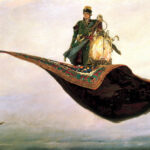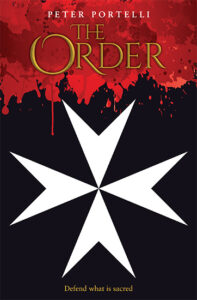Summary of The Historical Fiction Novel The Order
Believing an attack against Malta to be a matter of “when,” Jean Parisot de Valette, the newly elected Grand Master of the Order of Knights of the Hospital of Saint John of Jerusalem, sets about the fortifications of the island and its town-forts. The Knights’ loss at Rhodes is still a fresh memory in the minds of many, including Valette.
As much as he detests the island given to his brothers by the king of Sicily, he knows it is of critical strategic importance in the Mediterranean—it is a place where attacks against Italy could be staged by Ottoman armies and navies.
De Valette and others believed that should the Turks prevail in Malta, further peril might follow for the rest of Christendom. The military odds could not be longer.
For Malta, there were 600 knights and 8,000 Maltese citizen militia. As the siege progressed, roughly 900 Spanish and Italian soldiers joined Valette’s troops.
On the side of Suleiman the Magnificent, 30–40,000 Ottoman troops stood ready to take down the knights once and for all. A third of that number were battle-hardened troops—janissaries and sipahi cavalry, backed by hundreds of cannon and bombards.
As the Ottomans arrived on the island, they made a number of strategic and tactical mistakes that cost them dearly. Aside from the inexplicable blunder of Suleiman dividing the command of his troops, the field commanders grossly miscalculated the strength of the island’s fortifications, where the very landscape was used against them.
Finding no local food or water because of the natural sparseness of the island and de Valette’s scorched-earth policy, the formidable Ottoman army was worn down by a combination of battle losses, dysentery, and the Maltese militia whom de Valette himself had previously maligned. Far from an expected two-week battle, the Great Siege of Malta exacted a high toll.
As the story builds toward its climactic battles, we get glimpses of the lives of people beneath the exalted battle of egos among Suleiman the Magnificent, his field and naval commanders, and de Valette.
Analysis of The Historical Fiction Novel The Order
What I really enjoyed in the story were three things—the vivid painting of the faults of the legendary leaders, its deference toward the role of the Maltese, and its disdain for war.
Far from glorifying de Valette, he appears as a respected but arrogant and single-minded zealot who takes on the role of king in the name of the Order. He summarily executes people for real, perceived, and imagined threats.
On the other side, we similarly get an unflattering portrayal of legendary military leaders such as Dragut, Piali Pasha, and Mustafa Pasha. The two Ottoman generals are bickering, blundering, self-aggrandizing, and glory-chasing dolts who could not command a nag and who need to be “straightened out” by a pirate who precipitated the attack through his (likely self-serving) advice to remove a threat to his pirate fleet.
One of the more memorable lines I enjoyed comes from de Valette’s commentary on the hunt as a euphemism for war (p. 29):
…he still found man’s unfettered joy in destroying the animate, offensive and diabolical. Perhaps it made Man feel equal to God. God creates, Man destroys.
—Sir Oliver Starkley
Jean Parisot de Valette, the Grand Master of the Order of St. John during the pivotal Great Siege of Malta in 1565, exhibited a complex and strained relationship with the Maltese. While his leadership was instrumental in repelling the Ottoman invasion, his actions and policies reflected a prioritization of both his own and the Order’s interests over the welfare of the local inhabitants.
“I do not intend to surrender the island to save the lives of the weak.”
—Jean Parisot de Valette
The loss of Rhodes in 1522 was a significant blow to the Order. An embittered de Valette, imprisoned in the aftermath, carried the personal scars of that defeat. This context influenced his perception of the strategic importance of Malta in the Mediterranean. His determination to defend Malta at all costs can (and probably should) be seen as an attempt to restore the Order’s honor.
The island’s location made it a critical point of defense against Ottoman expansion, and de Valette viewed Philipp II of Spain’s “gift” of Malta to the Knights as self-serving. The book makes clear that the knights did not like the island, which they saw as inferior to Rhodes.
De Valette’s focus on Malta’s strategic value—and his resentment over the loss of Rhodes—overshadowed any consideration for the Maltese people.
His military strategies during the siege, such as the implementation of a scorched-earth policy to achieve the objective of denying resources to the enemy, had devastating effects on the Maltese.
The Maltese population had suffered greatly from previous conflicts, including mass enslavements by Barbary corsairs. During de Valette’s tenure, they played a crucial role in the defense of the island, yet their contributions were often underappreciated, and their suffering considered secondary to the Order’s military objectives.
I learned a lot during my reading of the historical fiction novel *The Order*, by Peter Portelli. It is a fantastic underdog story grounded in the real history of the Great Siege of Malta.
Get the Historical Fiction Novel The Order by Peter Portelli
Go get the historical fiction novel on Midsea Books
Learn more about Peter Portelli on his website, or on Facebook.
Further Reading
Jean Parisot de Valette – the Man and the Legend chantrou.net


